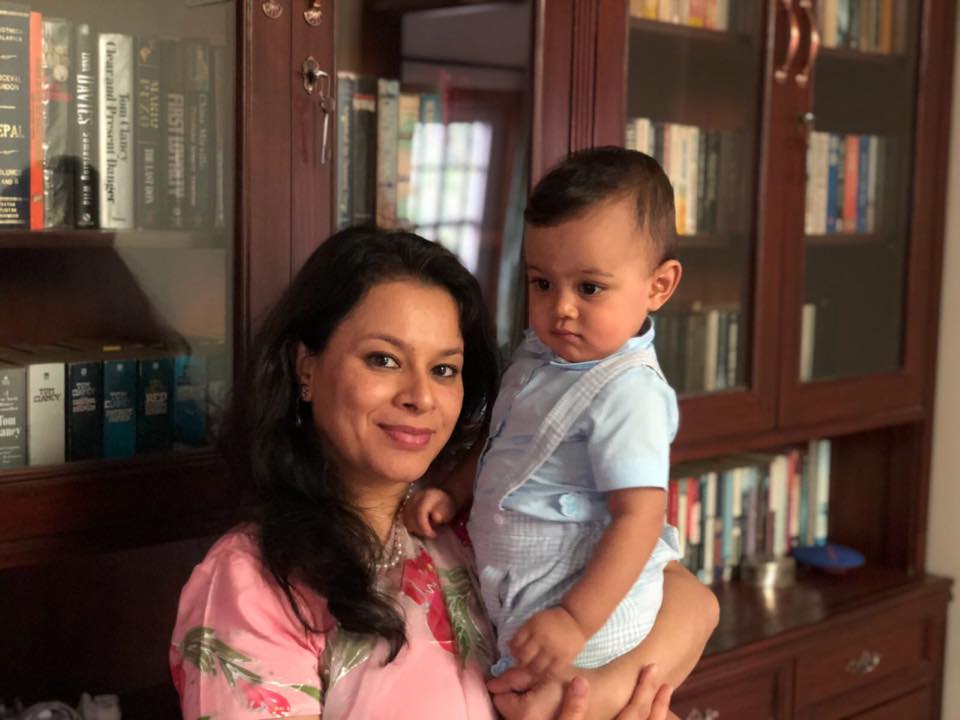Padmakshi has over 10 years researching, understanding and consulting at the intersection of business sustainability and innovation. Her consultancy work and research interests focus on sustainable business models, value exchanges and networks, stakeholder collaboration, and materiality and reporting for sustainability. She has an MPhil (Environment, Society and Development) and PhD (Manufacturing Management) from the University of Cambridge. She also co-founded The Inceptery, a sustainability-led innovation consultancy, in which she continues to be involved. She is currently at Nepal Communitere as a business incubation consultant for the I-Cube Business Incubation Program.

You focused on corporate social responsibility (CSR) and sustainability when you were getting your PhD at Cambridge University and when you worked there after. What is sustainability in the context of businesses?
Sustainability is really about how businesses can be aware of their environmental and social impact while still making themselves economically viable. There’s a certain social and environmental responsibility that all businesses should entertain to survive, if not for anything else, then their own long term viability. They need to think about the society and the environment, and invest in it because that is where their resources come from, and these are resources that businesses need to prosper. Sustainability, for businesses, does not have to be a liability or a cost if you think about the environment and the community as stakeholders in the long term.
What do you think businesses in Nepal misunderstand about sustainability and CSR?
CSR can be useful for strategic decision making, but businesses in Nepal generally understand CSR as more of a philanthropy tool, where it really isn’t. This is where the whole liability issue comes in, because CSR is seen as a mechanism where they just have to spend money and won’t benefit from. CSR can be thought of in a more tangible investment way where companies look at different shareholders and create an ecosystem for shared value. CSR needs to generate value for the business itself as well as the stakeholders that it’s working with. Building schools and community parks are good, especially when you realise that your current and future employees can gain value from good education and health.
How can they incorporate this type of sustainability or CSR into their business models?
There’s been a lot of talk surrounding business models in recent years, and that is what my post doctorate was focused on. We cannot always view businesses or industry as the only culprits for destroying the environment and community. We need different types of groups and organizations to partner with each other to move forward and tackle environmental and social issues such as climate change, resource use and labour conditions amongst others. Industries do need help from different stakeholders to work in tandem with the society and the environment.
Companies need to look at multiple forms of capitals. These include manufactured, financial, human, social and natural capital (source – Forum for the Future). There are some companies who in their balance sheets include social and environmental components in addition to the profits that they make; an example of this is Puma. You can integrate your finances and accounting with sustainability.
To prevent CSR from being a tedious greenwashing tool, and become a proactive strategy for businesses, companies can bring in social and environmental components into their business models. They can include these components into their everyday activities, from separating waste in the company and using water efficiently, to making decisions of where the business is heading and asking themselves whether or not their business is purpose led.
It is possible to push the social and environmental agenda and still make money, and businesses need to make money. If you invest in your future, if you invest in the environment, you’re preserving and investing in a place where your resources for the future will come from. If you invest in communities, that is where your future human resources will come from. If you don’t have clean air, it’ll impact your employees health, and if your employees aren’t happy, your productivity goes down.
You’ve worked as a consultant and even founded your own consultancy in Singapore that helps businesses innovate and transform themselves so that their business models and strategies are sustainability-led. How has this experience led to your working as a business incubation consultant at I-Cube?
I am lucky to have had the academic and professional exposure that I did, so when I came back to Kathmandu, I was looking for organizations where I could translate some of the knowledge, that would be helpful for businesses in Kathmandu. I was searching for places that were purpose led, and that’s how I came across Nepal Communitere.
Working with the team at I-Cube and the entrepreneurs just gives me that sense of use, that whatever I have studied is helping startups curate their businesses, and helps them think about sustainability in a more meaningful sense. And the startups at I-Cube have a very strong purpose led factor in their businesses, and they are existing as businesses because they want to make an impact on the environment and the community that they are in.
Every month we’ll feature a member of the Communitere family so you get to know us a little better. This month we’re highlighting Padmakshi Rana one of the newest members of the team!